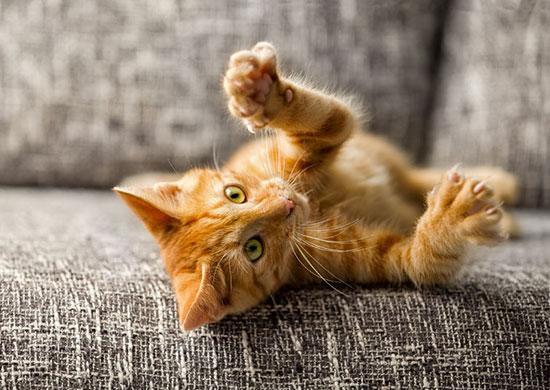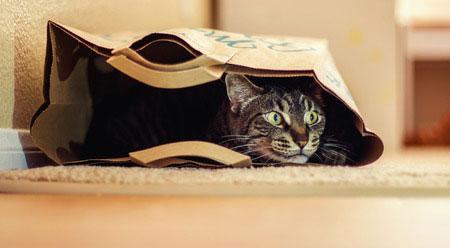This content is archived from the Feline Nutrition Foundation
Answers: Taking the Complexity Out of B Vitamins for Cats
- Updated: Saturday, June 01, 2019 02:49 PM
- Published: Saturday, June 18, 2016 01:55 PM
- Written by Marta Kaspar
 I am confused about B vitamins. Which ones do I need to add to homemade cat food? Your recipe says to use a B-complex vitamin, but the ones I look at are all slightly different. What should I be looking for when I buy vitamin B-complex?
I am confused about B vitamins. Which ones do I need to add to homemade cat food? Your recipe says to use a B-complex vitamin, but the ones I look at are all slightly different. What should I be looking for when I buy vitamin B-complex?
B vitamins play a very important role in every cat's life. These water-soluble nutrients are essential for cell metabolism needed for proper growth, development and energy production. As they are water-soluble, they are not stored in the body, but rather are eliminated through urine. Consequently, they can become deficient, especially in animals with excessive drinking and urination due to diabetes, kidney disease and other health issues. Vitamin B deficiency can be difficult to diagnose. For that reason, diagnosis relies on clinical signs. Since many of the signs for a lack of a particular B vitamin are overlapping, deficiency is typically treated with B-complex, as all B vitamins are relatively nontoxic.
Almost all homemade cat food recipes call for B-complex supplements, rather than adding each B vitamin separately. Remember, in a balanced, homemade cat food recipe, the B-complex is added to supplement the vitamins that are already present in the meat and organs. Vitamin B-complex is usually, but not always, made up of eight vitamins:
- B1 - thiamine
- B2 - riboflavin
- B3 - niacin, niacinamide or inositol hexanicotinate
- B5 - pantothenic acid
- B6 - pyridoxine
- B7 - biotin
- B9 - folic acid
- B12 - cyanocobalamin or methylcobalamin
Most products have inactive ingredients added as flavoring, binding and flow agents. Some may also have other active ingredients like vitamin C, choline, inositol – vitamin B8 or PABA – vitamin B10. Please note that the B-complex you use does not have to contain vitamins B8 and B10.
 B vitamins can be found in animal and plant sources. Muscle meat, for example, is a good source of B3 and B5. Liver, on the other hand, is a great source of B2, B5, B7, B9 and B12. The addition of only 4 percent liver to a raw cat food meal will deliver adequate amounts of all of these nutrients. Thiamine is the only vitamin that is difficult to supply in sufficient amounts from natural sources. It is also one of the most "sensitive" B vitamins as it can be destroyed easily by cooking/heating, by a neutral or alkaline environment or by oxidation. The richest source of thiamine is nutritional yeast.
B vitamins can be found in animal and plant sources. Muscle meat, for example, is a good source of B3 and B5. Liver, on the other hand, is a great source of B2, B5, B7, B9 and B12. The addition of only 4 percent liver to a raw cat food meal will deliver adequate amounts of all of these nutrients. Thiamine is the only vitamin that is difficult to supply in sufficient amounts from natural sources. It is also one of the most "sensitive" B vitamins as it can be destroyed easily by cooking/heating, by a neutral or alkaline environment or by oxidation. The richest source of thiamine is nutritional yeast.
So, unless we want to use at least 2 percent nutritional yeast in our homemade recipe, we need to add thiamine in some other form to prevent deficiency. The easiest way to do it is to use vitamin B-complex.
Unfortunately, there are a huge number of these products on the market with different compositions, strengths and quality. B-complex supplements can be sold in the form of tablets, caplets, softgels or capsules. So many choices makes it difficult to pick the right product for our homemade recipes. Here are few suggestions to make this process easier:
- Use powdered vitamin B-complex sold in capsules. They can be opened easily and mixed well throughout the food.
- Get a low-concentration product like vitamin B-complex 25 or 50mg. Only a small amount is needed to balance the diet. You can either sprinkle a small amount onto the food, add the amount called for in the recipe you are using or add at least one 25mg capsule to five pounds of food.¹
- Almost every vitamin B-complex has a specific odor. Some cats like it, others are not too crazy about it. As the product ages, some ingredients start decomposing and the smell gets stronger. To slow down this process, vitamin B-complex should be stored in a cool, dry place. Nevertheless, if the odor gets too strong, it might be a time to get a fresh product.
- To minimize the loss of these water-soluble vitamins once they have been mixed with the meat, it is important to retain all of the liquids coming from the meat, especially after freezing.
Additional Reading
Lastly, I would like to pay special attention to vitamin B12, a deficiency of which may occur in certain health conditions like diabetes, thyroid disease, stomach or intestinal problems, infections or cancer. Vitamin B12 deficiency can cause lethargy, vomiting, diarrhea, anemia and loss of appetite. Sometimes, these medical conditions require administration of doses of B12, usually delivered as subcutaneous injections in the form of concentrated cyanocobalamin solution. It is available by prescription only, but it is relatively inexpensive, safe and can be given at home.
Note: Feline Nutrition provides feline health and nutrition information as a public service. Diagnosis and treatment of specific conditions should always be in consultation with your own veterinarian. Feline Nutrition disclaims all warranties and liability related to the veterinary advice and information provided on this site.
Marta Kaspar holds a master's degree in chemistry from the University of Pardubice in the Czech Republic. She is a research scientist, and a formulation and analytical chemist in both industrial and academic fields. Marta became interested in feline nutrition when her cats developed health problems. When she decided to prepare their food herself, the effect of the homemade raw meat diet on her cats was so impressive that she created the line of Alnutrin® supplements to help others transition their cats to better diets. You can find her atknowwhatyoufeed.com.
1. Based on AAFCO nutrient profiles for cat foods. MS Hand DVM, PhD, CD Thatcher, DVM, MS, PhD, RL Remillard, PhD, DVM and P Roudebush, DVM, Small Animal Clinical Nutrition, , 4th ed. Walsworth Publishing Company, 2000, 1055.




